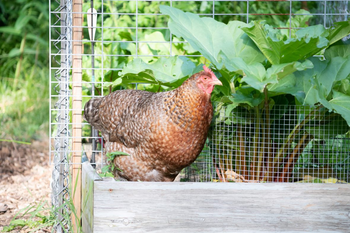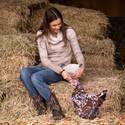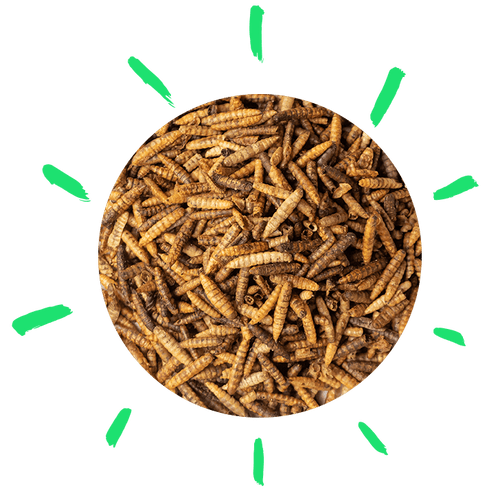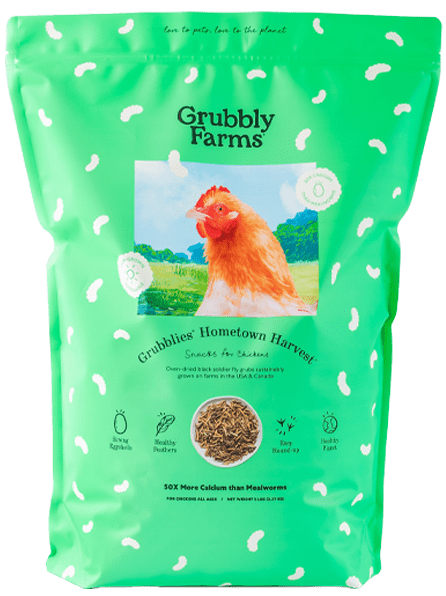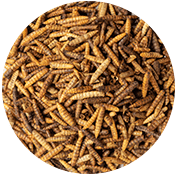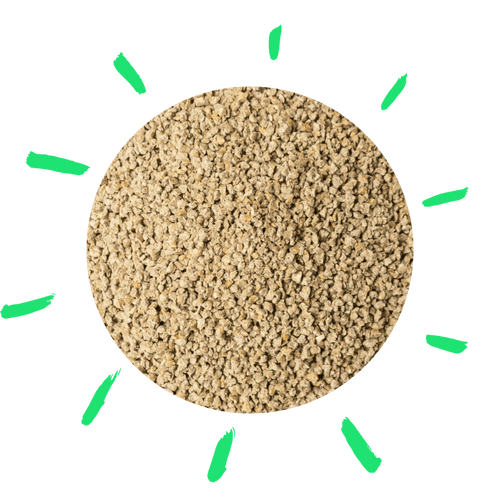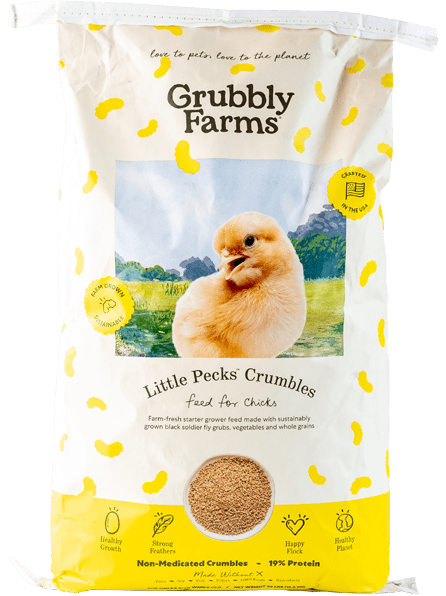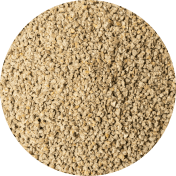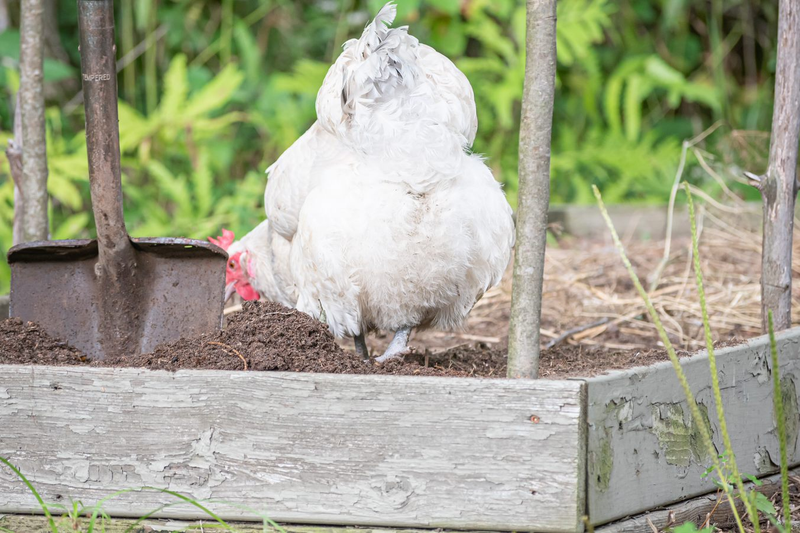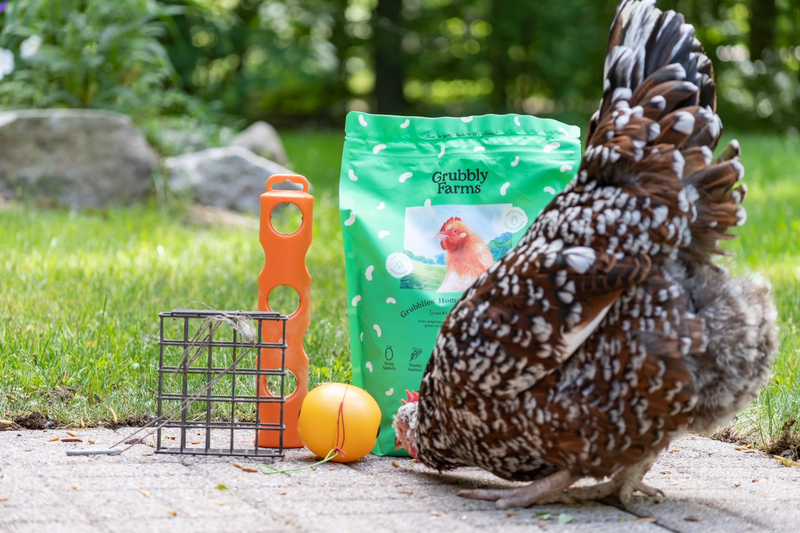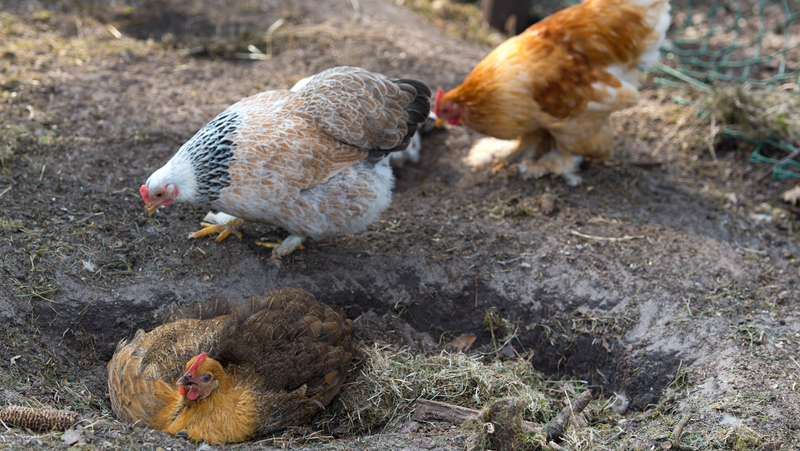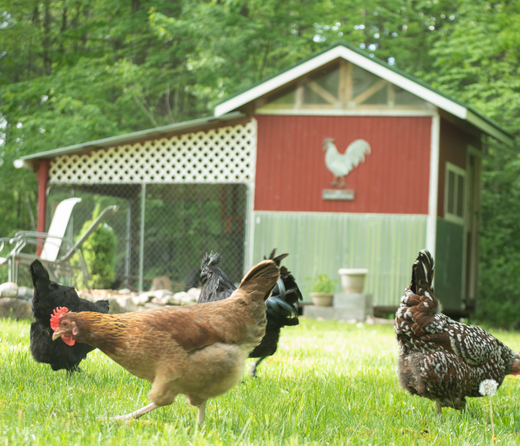Chickens and gardening: A match made in homesteading heaven? The reality is that chickens can be both a help and a hindrance to the garden. However, with a few proactive measures, you can create a harmonious relationship between your hungry hens and your thriving garden. All it takes is a bit of know-how, and some gardening supplies to ensure your gals and your garden will flourish. We will cover some tips you can use to ensure the safety of your plants while still getting the benefits that your chickens can provide to your garden!
Are Chickens Good for Gardens?
Considering a chicken’s destructive nature when foraging for food, you may be wondering if chickens are good for gardens. The answer is: Yes! Chickens are great for gardens! However, to make the most of your flock’s natural talents, you have to modify some aspects of your garden to promote beneficial behavior while protecting your plants.
How Do Chickens Benefit a Garden?

Having a flock as your gardening groundskeeper can enrich your garden both directly and indirectly. Indirect benefits are safer for your garden but require more work on your part. Direct benefits are work that your chickens can do right in the garden, but they take a little more monitoring and controlling.
From pest control to fertilizing to composting, there are numerous ways that your backyard flock can help you in the garden!
1. Pest Control
Chickens can be great pest control agents if you are dealing with a bug problem and your chickens don’t mind eating the pesky offenders. One chicken can de-bug a 120-square-foot garden area in about one week.
They can also help break up insect and disease cycles in the garden and garden soil. This is great if you have a problem with Japanese beetles (AKA June bugs) or aphids. However, chickens can be picky and they do not discriminate between good bugs and bad bugs.
2. Eggshells Make a Great Soil Amendment
The gift of eggs is one that keeps on giving–with no shortage of benefits for the garden. Save the eggshells every time you use eggs, then dry them and crush them to use as a soil amendment for your garden. Eggshells are an excellent source of minerals for healthy plants, including:
- Calcium
- Nitrogen
- Phosphorous
- Potassium
Pro tip: Tomato plants and eggshells make the perfect pairing. Just be sure to till them into the soil in autumn. This gives them time to begin to break down before your spring planting.
Many gardeners also swear by eggshells as a snail and slug deterrent.
3. Chicken Poop Compost
Chicken poop can be turned into great gardening gold. This waste makes for excellent nitrogen-rich compost for your garden. You can add chicken poop to your compost as green material and allow it to be broken down with brown material for a rich compost to add to your garden.
Chicken poop compost is plentiful when you raise a backyard flock! One standard-size chicken can produce about 2 cubic feet of compost in one year. For larger flocks, breaking it down into poundage is easier. One pound of chicken poop can be composted with 45 pounds of leaves (or brown material) for an easy and economical compost for your garden.
Since chicken poop is so rich in nitrogen, it has to be aged (or composted) before being used in large quantities directly in the garden. Nitrogen-rich substances like chicken poop can burn young plants and seedlings if it is not aged. Chicken poop contains about 3-5% calcium, 1-2% nitrogen, and .5% potassium, which are all great nutrients that will benefit your garden soil and plants.
Give them seedlings from thinning your garden, weeds, leftover produce, or anything else that you grew but won’t eat from your garden. Your flock will make sure nothing in your garden goes to waste!
4. Free-Range Fertilizer
As chickens free-range through the garden, they are bound to leave their nutrient-rich poop behind. When left in small quantities, chicken poop won’t harm your garden when applied directly to the soil. Just be sure to rinse your veggies before serving them.
Most used chicken litter can also be repurposed as mulch with built-in fertilizer. Check that your litter is free of any chemicals that could harm pollinators or plants. Then sprinkle it around the base of your plants–but not right up against the stems.
5. Tilling Your Soil
Chickens can help you till and aerate your garden soil. As your flock forages through the dirt, they will turn over the first couple inches of dirt which allows air to penetrate while loosening the soil. Plus, because chickens can’t dig too deep, this surface-level tilling won't disturb the soil composition.
6. Weeding
Having your flock help with weeding can get a little tricky, but they can do it. Your ladies can help weed between garden rows or areas of the garden that have not been planted.
7. Thinning Seedlings
While it’s best not to let your chickens do the thinning themselves, they can help out with any leftover seedlings from when you thin the garden. The sprouted seeds will actually be nutrient-rich and beneficial for your flock!
8. After Harvest Clean Up
Let your chickens into the garden after you have harvested everything that you want and they will help clean up any leftovers! Nothing has to go to waste when you have a clean-up crew waiting to gobble up leftover produce, plants, and weeds!
9. Aerate Existing Compost
Chickens can be extremely helpful with compost maintenance if given access to the compost pile! They can help you turn and aerate your compost pile while adding their droppings to the pile while they work.
How to Protect the Garden While Utilizing Your Chickens

When left to their own devices, chickens can (and will) destroy your garden. Of course, this isn’t because your flock has malicious intent. It's because chickens are governed by their instincts, and when foraging, they are strictly foraging for food and anything edible.
Implementing preventative measures is essential for gardening productively with your flock. Here are some activities you will want to prevent when allowing your flock to help in the garden:
- Eating freshly sown seeds: Don't allow your flock access to areas of the garden that have just been planted.
- Pulling up seedlings: Even after the seeds sprout, give them time to mature before allowing your chickens near the young plants.
- Dust bathing: The loose dirt in the garden may be very enticing for a good dust bath. Many chickens also adore freshly laid garden soil. So, provide your flock with a dust bath location that is away from the garden to discourage dust bathing in the garden.
- Eating leaves, flowers, and fruits: Chickens will eat the same foods that you eat from your garden. They may also strip a plant of its leafy greens or flowers as well. Fencing is your garden’s best protection!
- Trampling plants: Even if chickens don’t eat the plants in your garden, they can easily trample young, fragile, or short plants. Again, fencing will be imperative for protecting your garden!
- Digging and exposing roots: Chickens are master diggers, which can be helpful for aerating and tilling, but not so helpful once you have plants in the ground.
- Eating beneficial bugs & critters: You may consider rehoming your beneficial pollinators and critters (like earthworms and toads) to areas of the garden that are protected from your flock. Use your chickens as pest control if you are trying to get rid of an outbreak of bad bugs.
How to Chicken-Proof Your Garden
Despite the fact that chickens can be rather destructive in the garden, there are still many resourceful ways you can use to protect your garden and still allow your chickens to help out.
Controlling the natural foraging instinct of your flock is impossible, so you will want to focus your efforts on protecting your plants.
1. Cages Keep Your Plants Protected
Cage off plants that are especially attractive to chickens or plants that may be trampled. You can buy dome or bell cages, or you can make your own plant cages using chicken wire. A simple DIY plant cage can be made by wrapping chicken wire around an upside-down tomato cage.
2. Fencing Can Be a Gardening BFF
Fencing can be used to block off access to certain parts of the garden or specific crops. Since chickens can fly, fencing that is at least 4-5' high will be needed to discourage your flock. Tall fencing will discourage all but the best flyers.
Also, make sure the fencing is sturdy but leave the top line of the fencing unstable. When a chicken lands on the fence, an unstable or uneven top line can make it difficult for them to perch and then hop down into the garden.
Poultry netting, chicken wire, galvanized wire, or chain-link dog kennels can all function as garden fencing. Fencing that has openings no bigger than ½" will provide the most protection from close-range munching.
There are many unique and effective ways to fence off the garden. Just keep in mind that determined chickens can find ways around or over fencing if it is not adequate enough to discourage them.
3. Protect Plant Roots
For plants that don't appeal to your flock’s taste buds, you may want to focus on protecting their roots. Place paving stones or large rocks around the base of the plant to cover up any soil that is protecting the plant’s roots.
4. Raised Gardens
Raised gardens make it harder for your flock to access the actual plants in the garden.
Keep in mind chickens may still fly up to the raised garden beds, so fencing and plant protection may still be needed. However, if the plants are above eye level for the chickens, they may not know they are there and will ignore the raised garden beds. Chickens can still help out with pest control if they forage around the raised beds.
Use these methods to protect your entire garden, parts of your garden, or specific plants depending on how much access you want to give your flock to your garden.
How to Best Use Chickens in the Garden
Once you have figured out ways to protect the most prized parts of the garden, you can start considering different ways that you can use your backyard flock for maximum production.
Here are some ways you can control your flock’s direct help in the garden:
- Chicken Tractors: A chicken tractor is basically a portable pen that will contain your flock but allows you to move the pen around to different locations in the garden.
- Chicken Chunnel: A chicken chunnel is basically a tunnel-like structure made out of chicken wire that you can build between rows in your garden or around the circumference of your garden. Your chickens can wander throughout the garden in the chunnel without disturbing your garden plants.
- Supervised Garden Time: Sometimes you can give your flock direct access to the garden as long as you are there to supervise. Work on weeding, pruning, thinning, mulching, or harvesting while you supervise your flock in the garden.
- Rotate ‘Grow Zones’: Have your garden fenced off into several different sections that you plant at different times. Then rotate your flock through the different sections when a section is not planted after a section has been harvested, or when the plants can withstand your flock’s foraging. This gives their manure time to age while they till the soil.
- Allow Off-Season Free-Ranging: Giving your flock access to the garden in the ‘off-season.’ controlling where they can go in the garden, or giving them access to limited parts of the garden can still allow your flock to help out in the garden directly.
Feathers, Flowers, & A Flourishing Garden

After you cultivate a better understanding of how chickens can help your garden, don’t hesitate to get your hands dirty! Using your gals to keep your plants glowing green and growing strong is a wonderful benefit of keeping a flock (even though it takes a bit of planning and preventative measures). So, if you have a green thumb and a special place in your heart for your best hen friends, you can have a homestead to be proud of!
Provide your girls with plenty of nutrients on the front end with all-natural layer feed to ensure the best compost, fertilizer, and eggshells on the back end!





